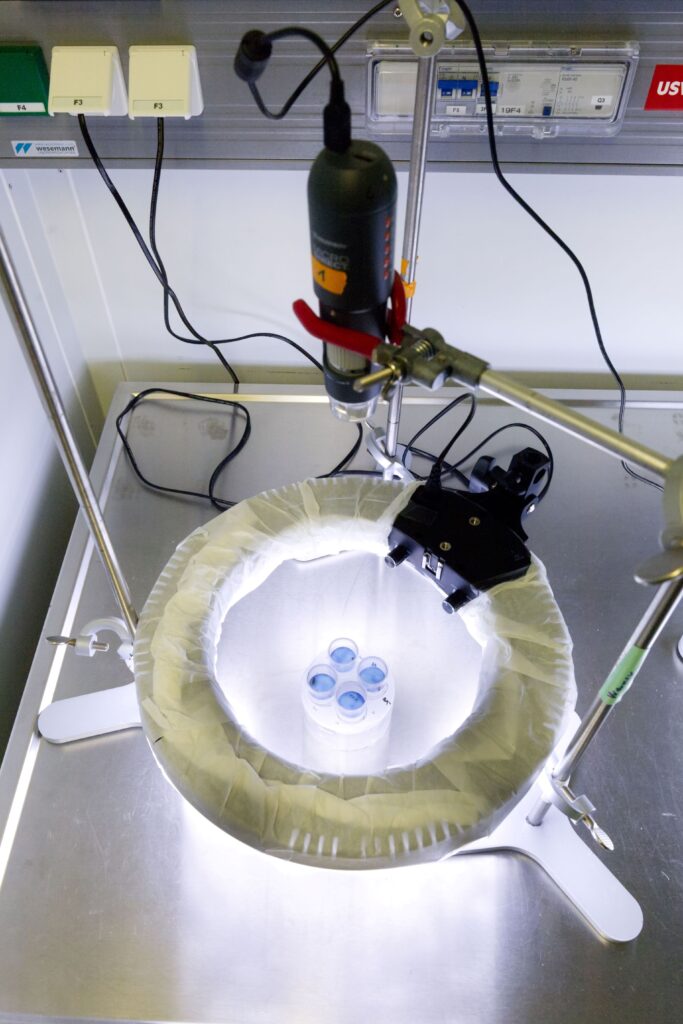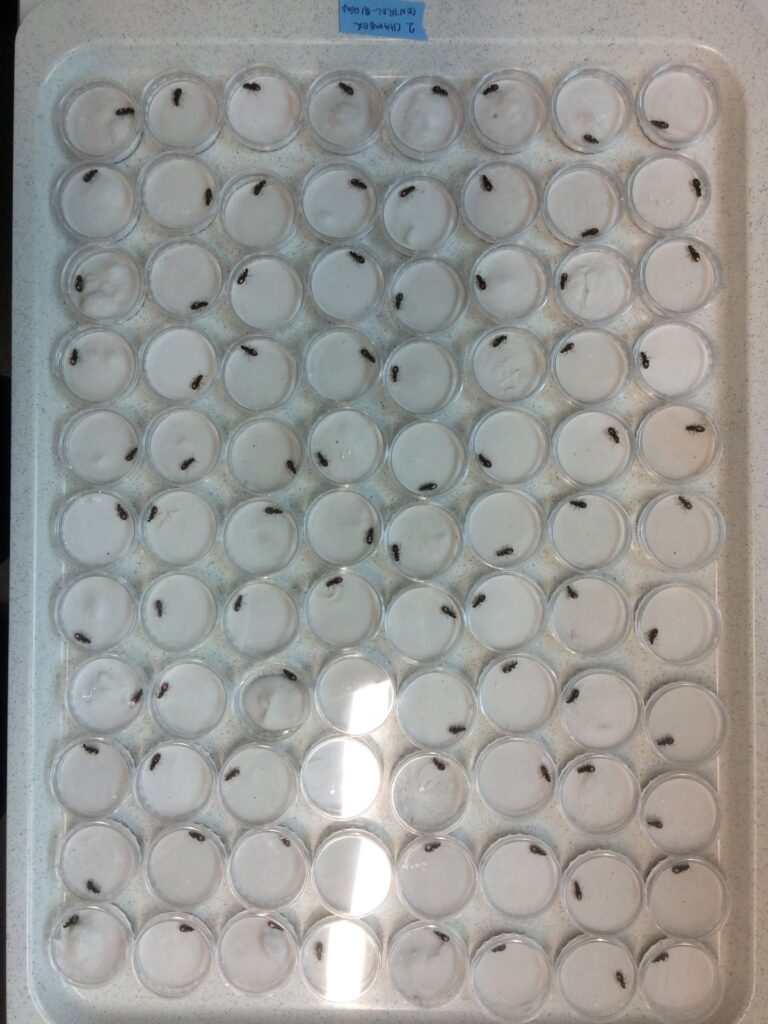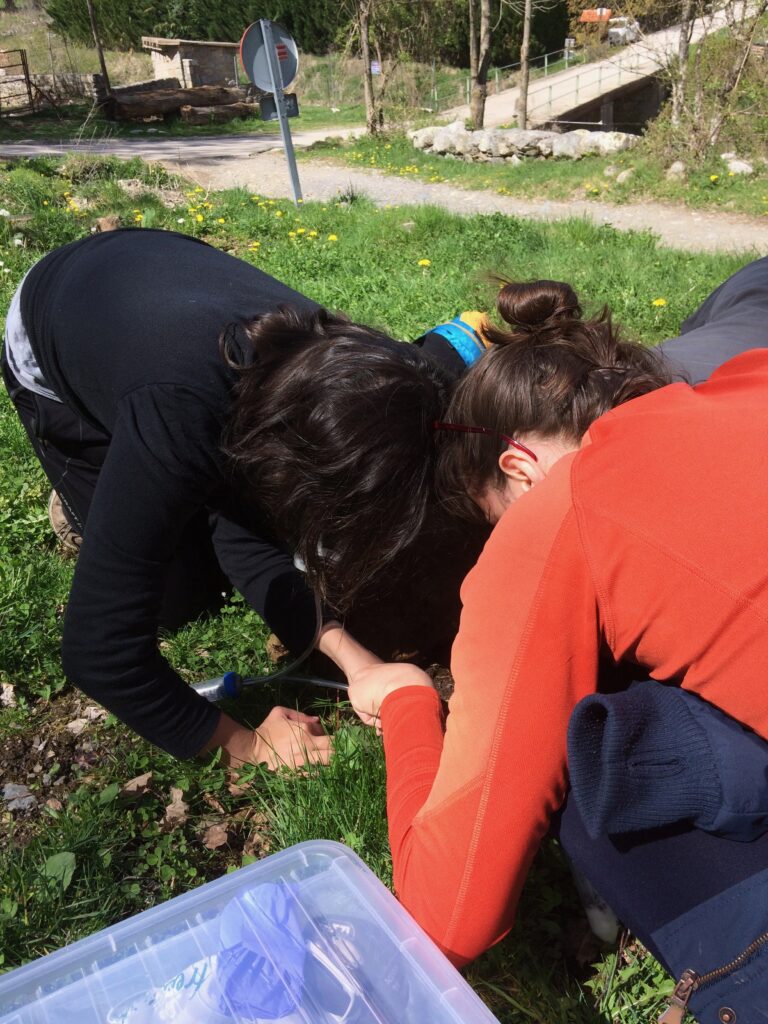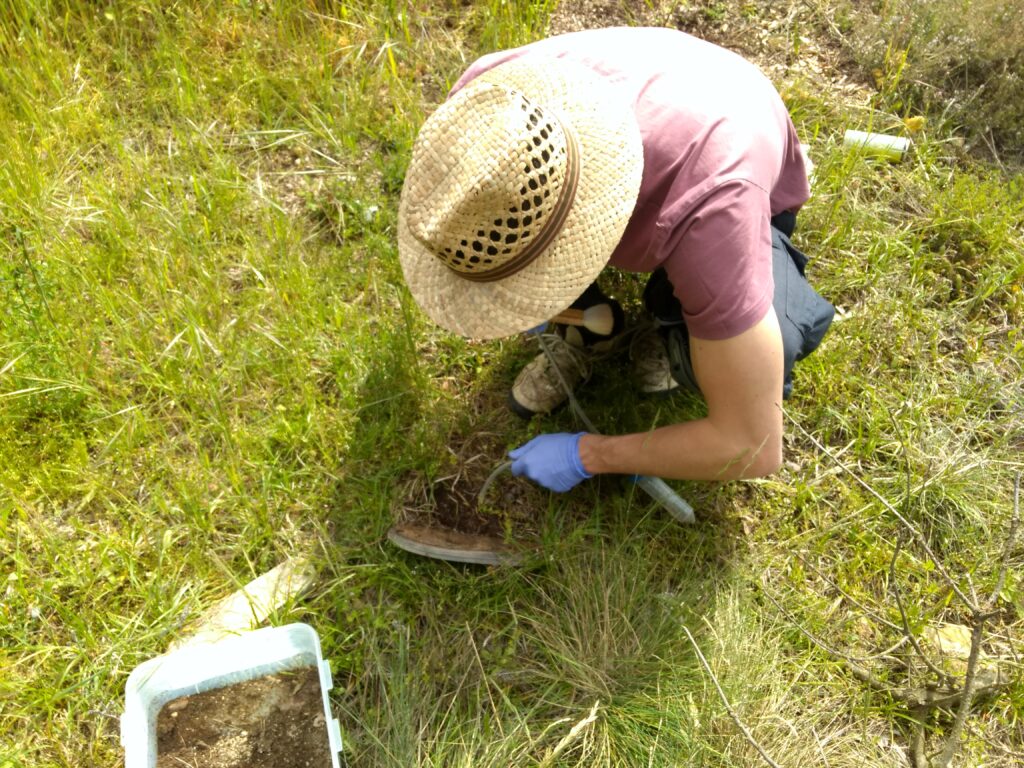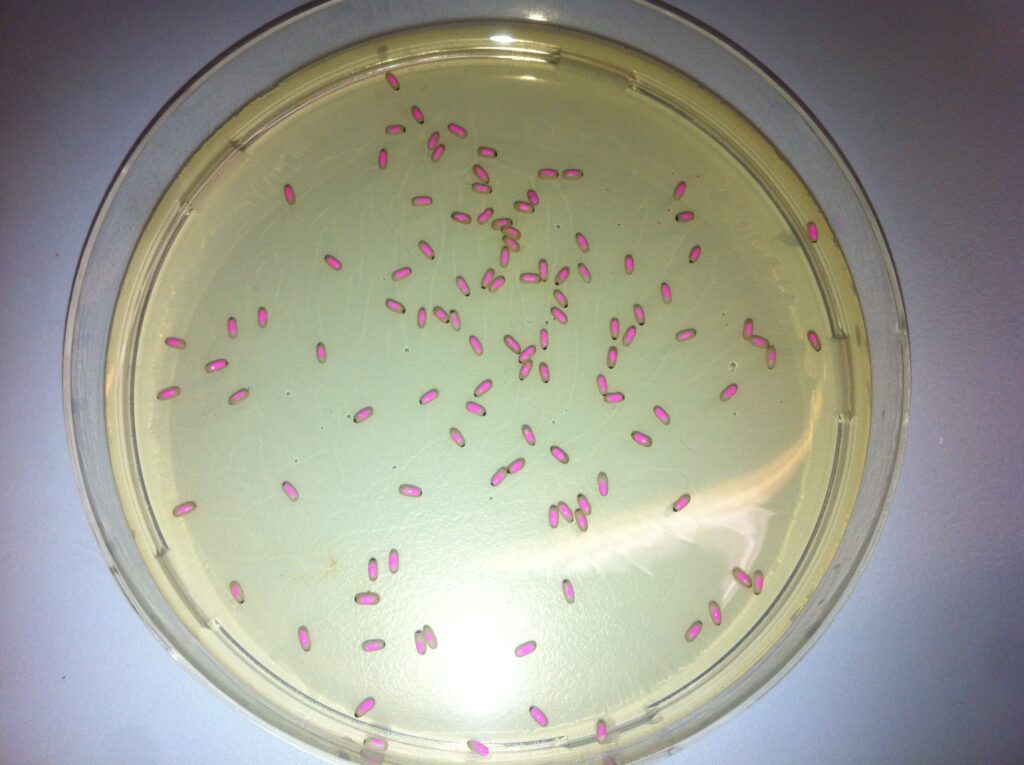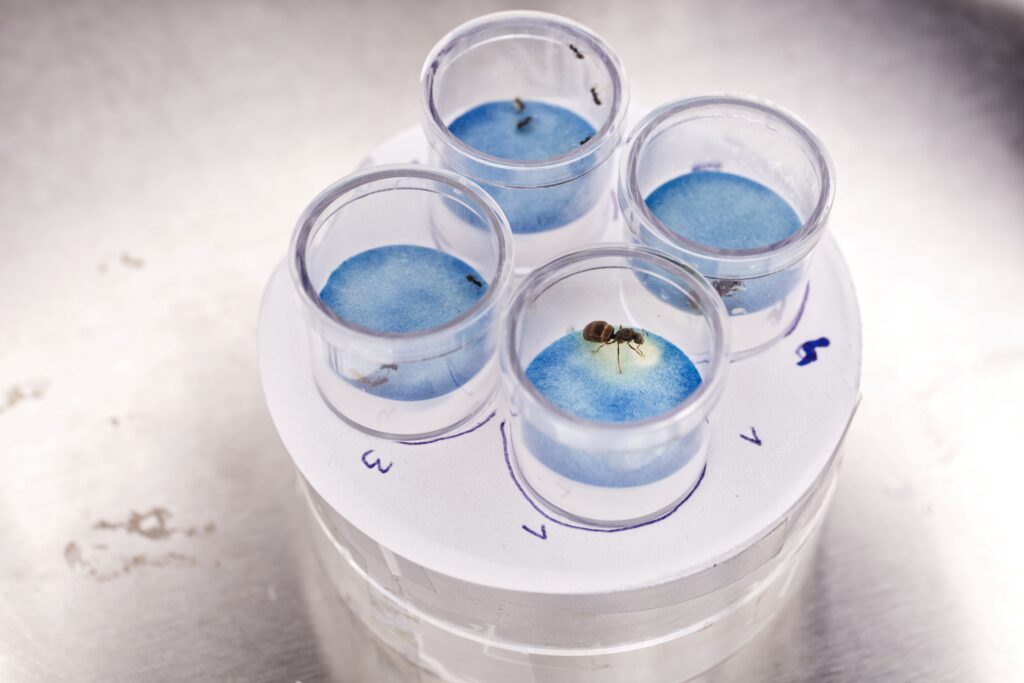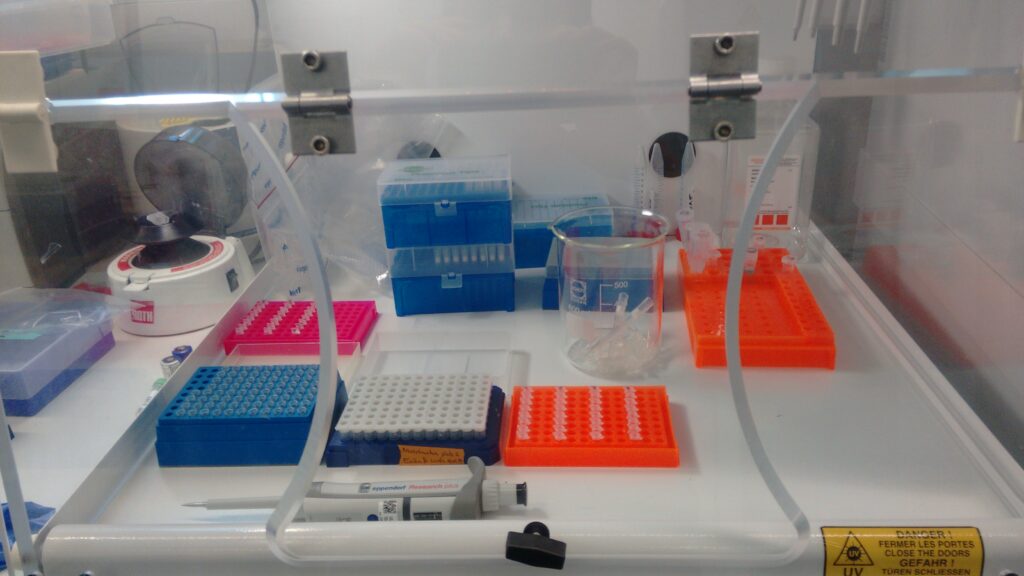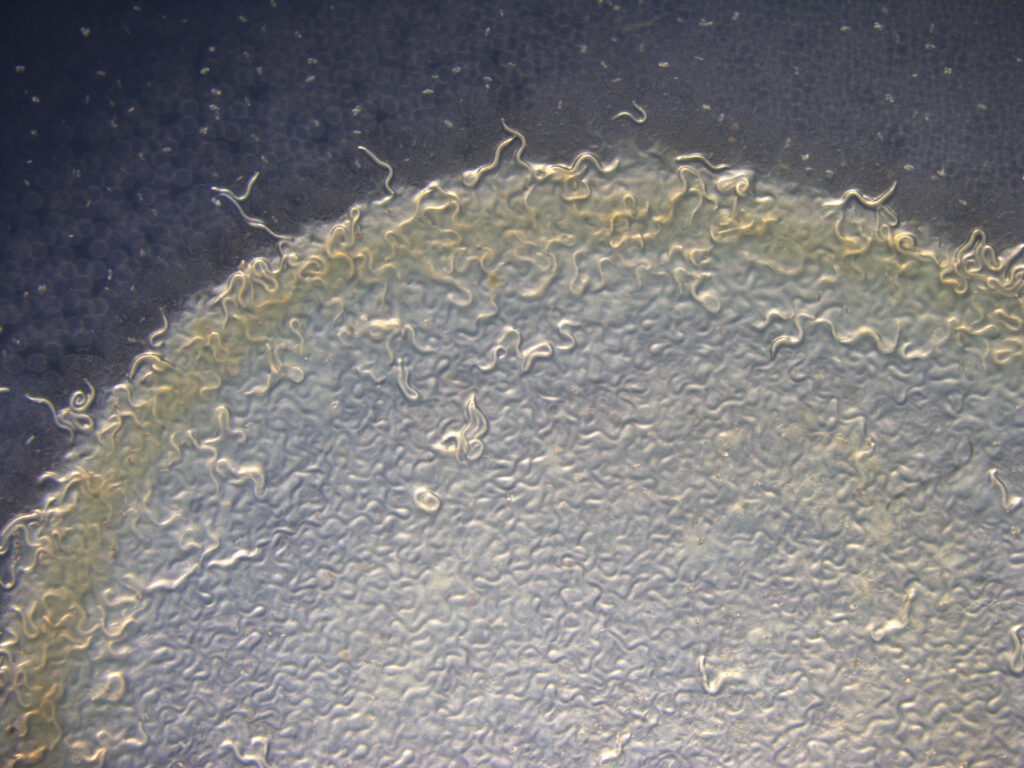Research of the Cremer Group at ISTA:
Social immunity
We study how ants cooperate to fight disease by individual and collective behaviour, use of disinfectants and their physiological immune systems.
Social insect colonies are protected against disease by cooperative disease defences
In social insects, colony members cooperate to provide social immunity to the colony. We use ants as a model system to understand the emergence, mechanisms and fitness effects of social immunity.
Social immunity protects “superorganismal societies” from disease
- The colonies of ants and other social insects represent a special form of social organization.
- Colony members specialize in their function and, similar to the cells in a body, act together as a single reproductive unit – the superorganism. Even if separate individuals, the colony members hence show unconditional cooperation and protect the colony by a superorganismal immune system reminiscent of the physiological immune system of individual organisms by collective hygiene, mutual sanitary care and active disease signalling.
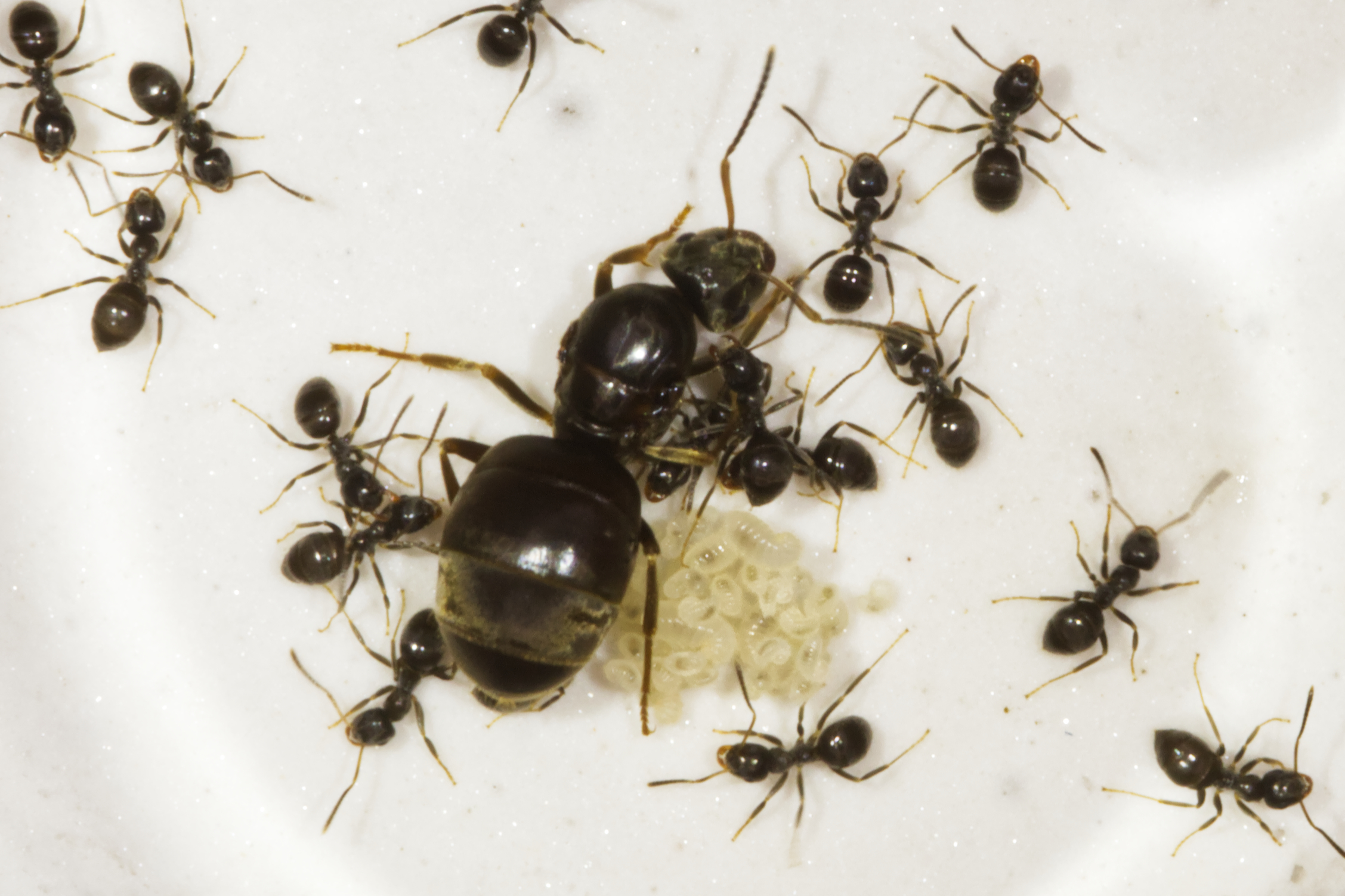
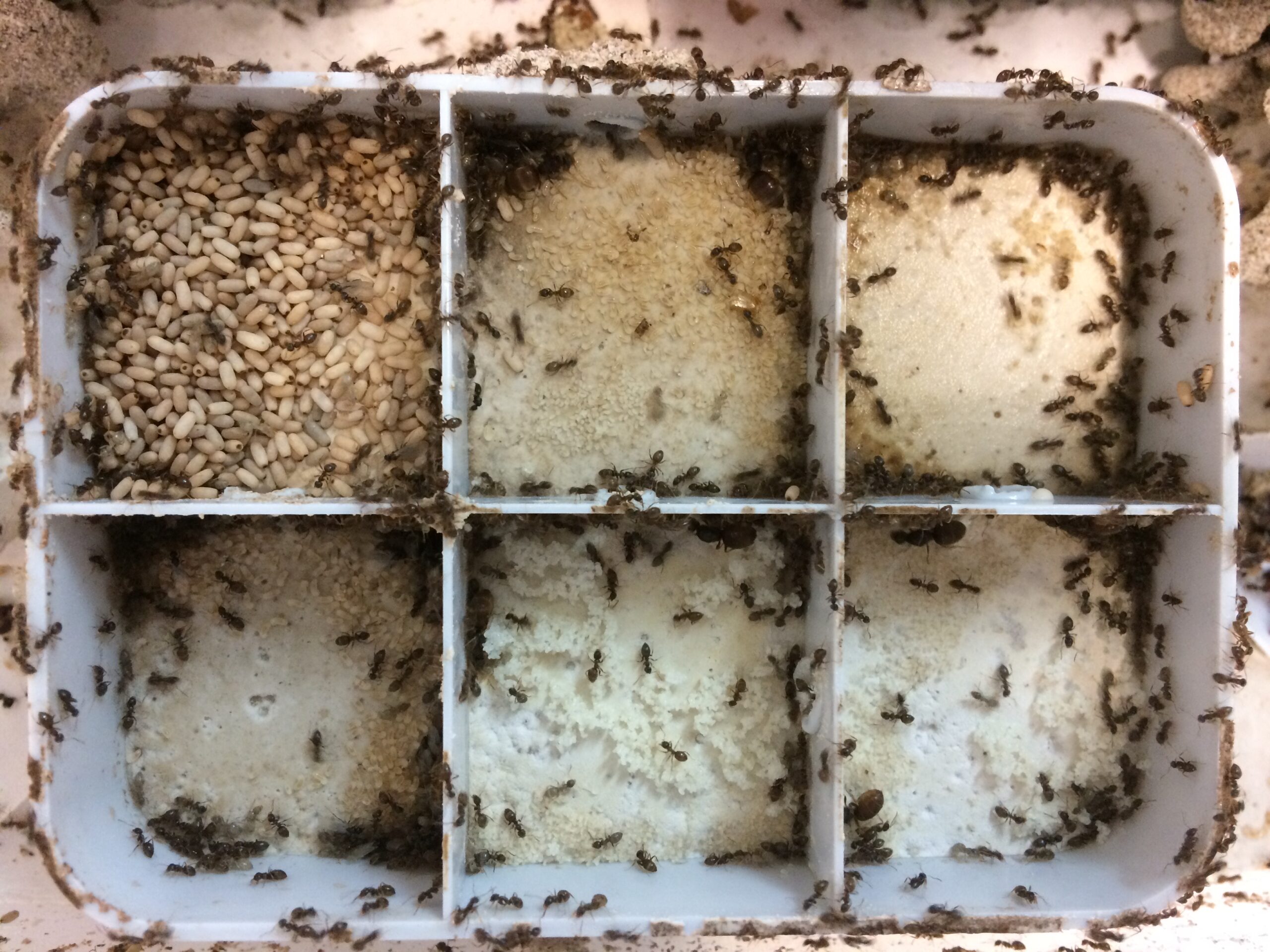
- At the same time – like in societies – disease can spread between colony members via their social interaction networks. Ants are actively modulating their behaviors and hence contact networks upon pathogen contact, thereby using „organizational immunity“ to reduce epidemics.
- Social immunity acts against both aspects of a social insect colony: it reduces disease spread between colony members due to adaptive interaction patterns, and ensures fitness of the colony by cooperative actions of colony members.
Recent publications
-
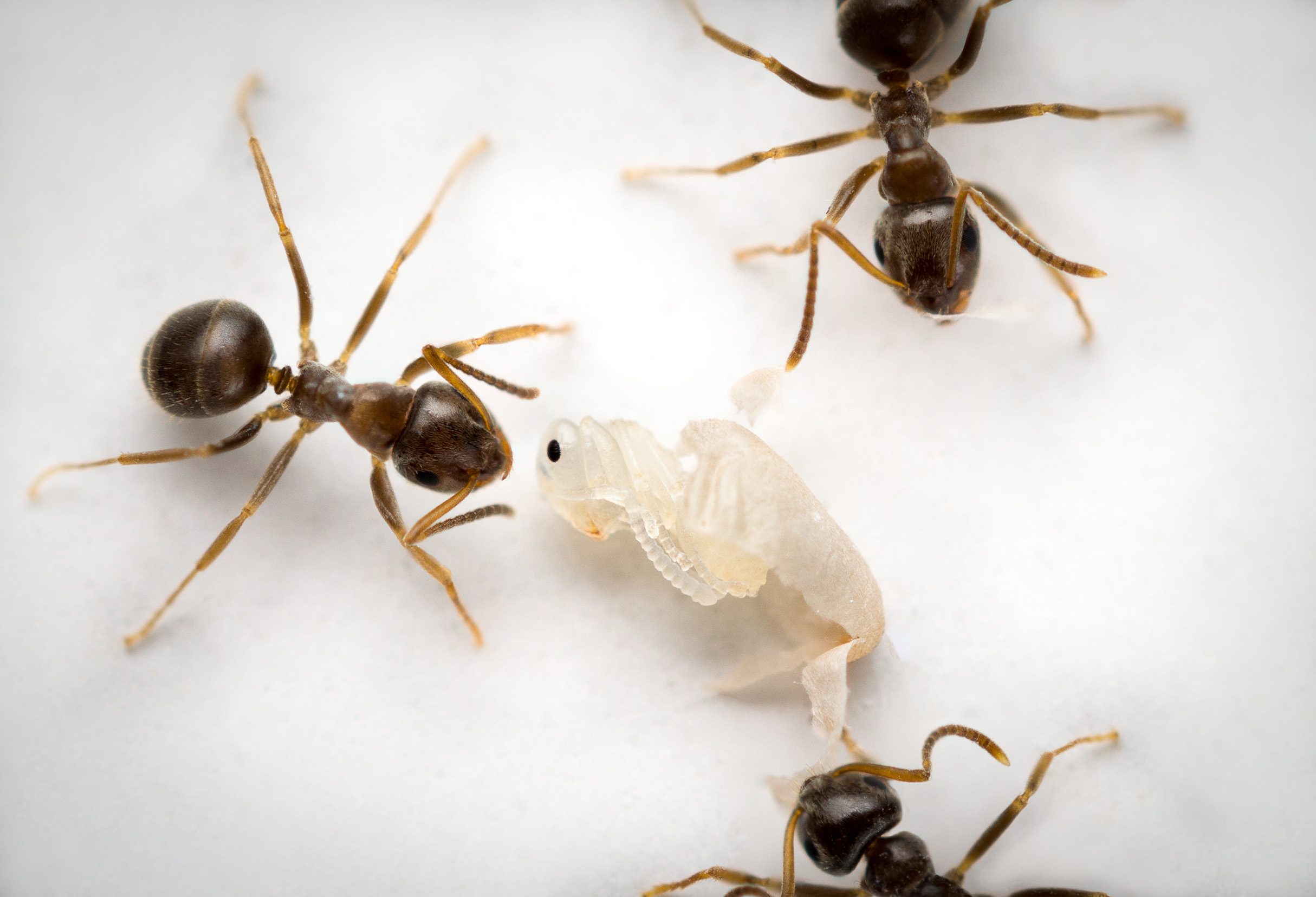
(Nat Comm, 2025) Altruistic disease signalling in ant colonies
In this paper, we show that fatally-infected brood alerts colony members to its sickness by active chemical signalling. Such altruistic disease signalling is an expression of the unconditional cooperation found in superorganismal insect colonies.

